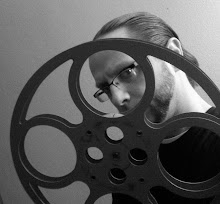
After reviewing the behemoth film INCEPTION, it was fitting to take a step back and view an independent film that most people have not even heard of yet. Indie film can be hit or miss, full of surprises good and bad. Either way, it can always offer more than what mainstream Hollywood tends to churn out this time of year.
Director Alejandro Amenabar returns to American screens for the first time since his supernatural tension-fest THE OTHERS (2001). In AGORA, Amenabar tries to balance historical drama with the story of a remarkable woman who was ahead of her time. Amenabar stumbles with the balance, and this winds up a see-saw with a fat guy on one end and an Ethiopian on the other.
AGORA is set in Roman Egypt, 391 A.D. A slave, Davus (Max Minghella), turns to the growing power of Christianity, while falling in love with his master, the famous female philosopher/athiest Hypathia of Alexandria, (Rachel Weisz), a woman who discovers modern astronomy 1200 years before anyone else.
AGORA is set during a time when Christianity is still somewhat new, and is quickly on the rise. Conversions are done via bloodshed and stoning, and they war frequently with Pagans and Jews. It is a violent time, and Amenabar portrays the time in all of its bloody glory. Getting lost in the fighting is the story of Hypathia. Where it is customary for historical pieces to focus on an individual with historical events as a backdrop, the opposite happens here. Although significant time is spent with Hypathia as she unravels the secrets of the universe, she tends to be just a small piece in a larger puzzle. Hypathia begins as interesting character, full of wisdom and grace, but she is sadly underdeveloped, lost in the bigger picture, and we never find out just why she is willing to die for what she believes in.
Where AGORA stumbles in its narrative, it dances everywhere else. The film is beautifully shot and scored, creating an atmosphere of dread and grace all at the same time. CGI is used sparingly, which is good news because it’s not very good. It sticks out like a sore thumb amidst the striking practical camera-work and exquisite set design.
Historical detail seems to be done very well. Old customs, costumes, lifestyles and environments are brought back to life with satisfying detail. The choice to dress the Christians (antagonists) in black works well on film, as it goes a long way to discern the differences between the many warring groups (otherwise it just looks like a million guys in black beards).
Weisz turns in a great turn as Hypathia. She is convincing as an intelligent and driven woman. The film shines when she is on screen, and suffers when it veers away from her.
AGORA is worth a look out of interest in the historical figure and the time she lived in. Again, the bulk of the attention is given to the events over the individual, and film then feels like a TV series.
BOTTOM LINE: Rent it.

No comments:
Post a Comment
A few rules:
1. Personal attacks not tolerated.
2. Haters welcome, if you can justify it.
3. Swearing is goddamn OK.